Stages of Change Worksheet Addiction
Are you struggling with addiction and looking for a useful tool to help you navigate the stages of change? Look no further! This blog post will introduce you to the stages of change worksheet for addiction, which can be a valuable resource for anyone on their journey toward recovery. This worksheet can be used to help bring awareness to addicted people who are still in denial about their bad habits. So, this worksheet can be used by therapists and mental health professionals as a renewal tool to help patients change their bad behavior to good behavior. Caregivers can also use it as a tool to provide a support system to people close to them who are addicted.
Table of Images 👆
More Other Worksheets
Kindergarten Worksheet My RoomSpanish Verb Worksheets
Cooking Vocabulary Worksheet
DNA Code Worksheet
Meiosis Worksheet Answer Key
Art Handouts and Worksheets
7 Elements of Art Worksheets
All Amendment Worksheet
Symmetry Art Worksheets
Daily Meal Planning Worksheet
Use the Addiction Stages of Change Worksheet as a coping strategy to recover from addiction!
What is Addiction?
Addiction is an action without the control of the person doing it. This is a dangerous action. Addiction is often associated with drugs, cigarettes, and alcohol. However, there are also other bad habits which are also called addictions. An example is working until you are exhausted.
There are many things that can cause addiction. For example, feelings that create a strong urge to do something dangerous repeatedly. That feeling of pleasure develops into a habit that is difficult to stop.
The urge to carry out this habit can be in the form of physical or psychological encouragement. So, a person feels dependent on something (a dangerous object or activity) which has a bad impact on him or herself. It affects the person's life. The bad effects of addiction are stress and depression.
Several studies explain that addiction is caused by environmental factors and genetic factors. Therefore, addiction must be treated immediately so that the sufferer's quality of life can improve.
How to Support People with Addiction?
If someone close to you is addicted, you can provide support to them in the following ways.
- First, understand the meaning of addiction so you can know the causes, risks, and how to overcome it.
- After that, try to communicate with that person. The goal is to find out the cause of addiction.
- If you understand the causes of addiction, you can find out how to overcome this addiction. This is because each cause of addiction requires special treatment.
- Look for pleasant support so that the people closest to you are willing to carry out the addiction healing process. If the person doesn't want to do this, you can ask a mental health professional or therapist for help.
- Be a good example for them. You must be patient in supporting people who are addicted. Don't forget to always listen to them so they don't feel neglected.
- Understand the signs of relapse. This is important to be able to prevent bad actions carried out by addicted people.
What are the Stages of Change in Addiction?
Stages of Change is a model that explains how change can occur. There are 5 stages in the model; precontemplation, contemplation, preparation, action, and maintenance. The model assumes how a person goes through a process to change behavior. The person changes the bad behavior to the good behavior.
The Stage of Change Model was developed by Carlo DiClemente and James Prochaska in 1980. This model is also called the Transtheoretical Model of Behavior Change. This model is a tool for individuals who are in the process of addiction recovery. This model can also be used by people and professionals who want to change their behavior.
Now, let's understand the 5 stages of the Stage of Change Model one by one!
- Precontemplation: This first stage is the stage for people who are skeptical and refuse to stop using dangerous substances or actions. At this stage, the addicted person feels that their behavior is not problematic. But in the end, they felt that this action had a bad impact on them.
- Contemplation: In this stage, people who are addicted or have bad behavior begin to reflect on their actions. Awareness is the main sign at this stage. Usually, people stay in this stage for years and they still hesitate to ask for help.
- Preparation: This is the developmental stage of contemplation. Individuals have spent time thinking about their addictions and bad behavior. So, they have understood the pros and cons of this behavior. Because of this, they started looking for support to recover their condition.
- Action: They usually seek help from detox centers or treatment programs. They also ask for support from those closest to them and the community.
- Maintenance: This stage occurs when the individual stops using harmful substances or actively engages in bad behavior. They have adopted positive and healthy behavior. The main goal of this stage is to maintain long-term recovery.
How to Use the Stages of Change to Treat Addiction?
You can use various ways to use the Stage of Change. Here is an example of using Stage of Change to treat addiction.
- First, identify the stages of your behavior. Are you in the pre contemplation, contemplation, or another stage?
- Then, understand the characteristics of each stage to find out the goals and challenges of each stage. This way, you can deal with problems as they occur.
- After that, set realistic goals. For example, you are in the preparation stage. So, you can set a goal to find professional support.
- Next, seek support to speed up the recovery process. So, you don't have to go through all the difficult processes alone, so you are more motivated to recover.
- Lastly, take care of yourself as best as possible. You should eat well, get enough sleep, and engage in positive and enjoyable activities.
What are the Stages of Change Worksheet Addiction?
Stages of Change Worksheet Addiction is a worksheet used to help people who are addicted quickly recover from their bad condition. This worksheet helps you to understand each process or stage so you can know yourself well.
This worksheet is usually presented in the form of a Stages of Change cycle. With attractive visuals, these worksheets are the best tool to use. Therapists and mental health professionals can use this worksheet as a tool to help their patients recover from addiction.
Addiction is a bad behavior that has a negative impact on the addicted person and the people around them. Therefore, methods are needed to overcome addiction. One way is to use the Stages of Change Worksheet Addiction. This worksheet helps people who are addicted to create the best coping strategies to recover from addiction.
Have something to share?
Who is Worksheeto?
At Worksheeto, we are committed to delivering an extensive and varied portfolio of superior quality worksheets, designed to address the educational demands of students, educators, and parents.

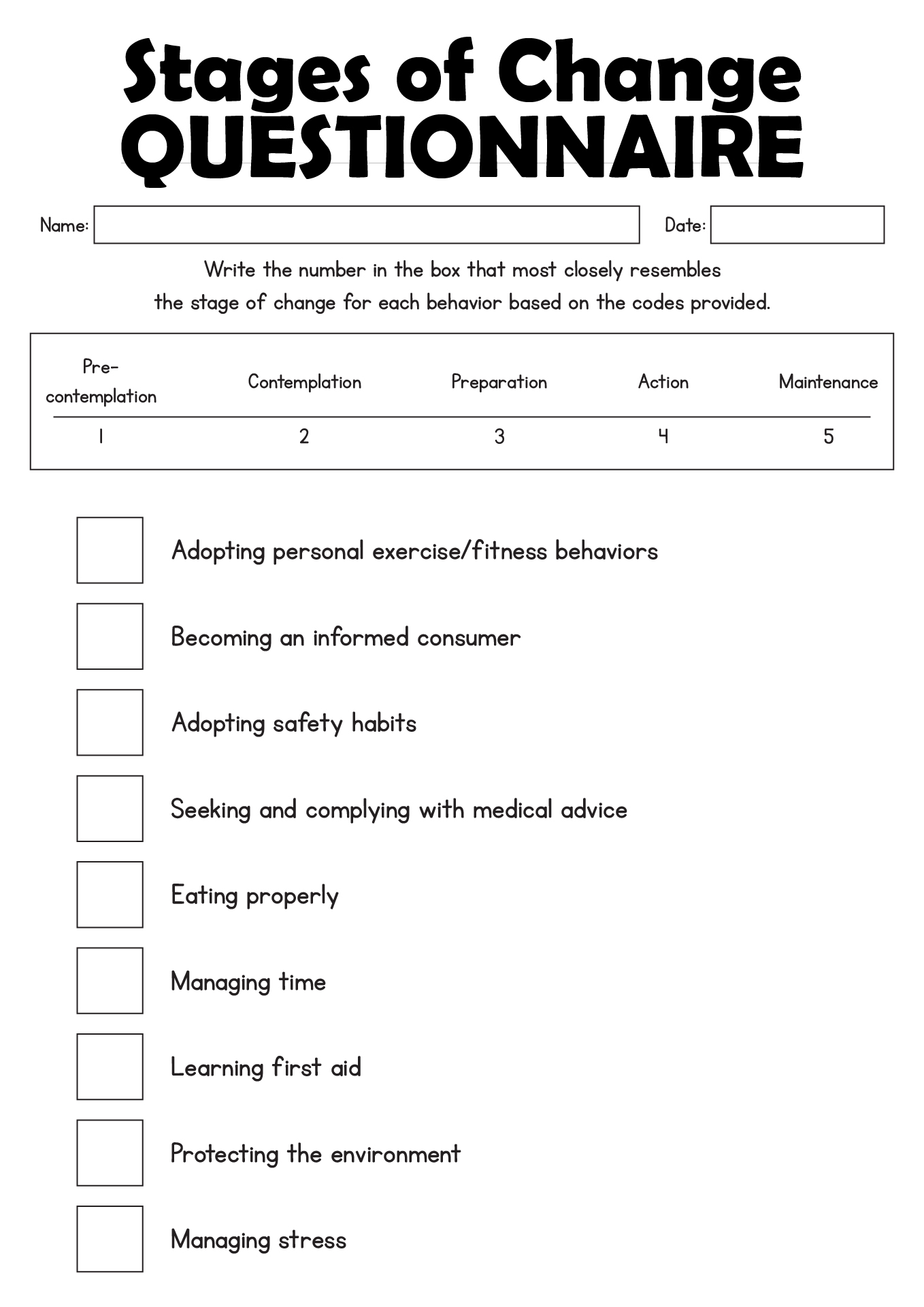



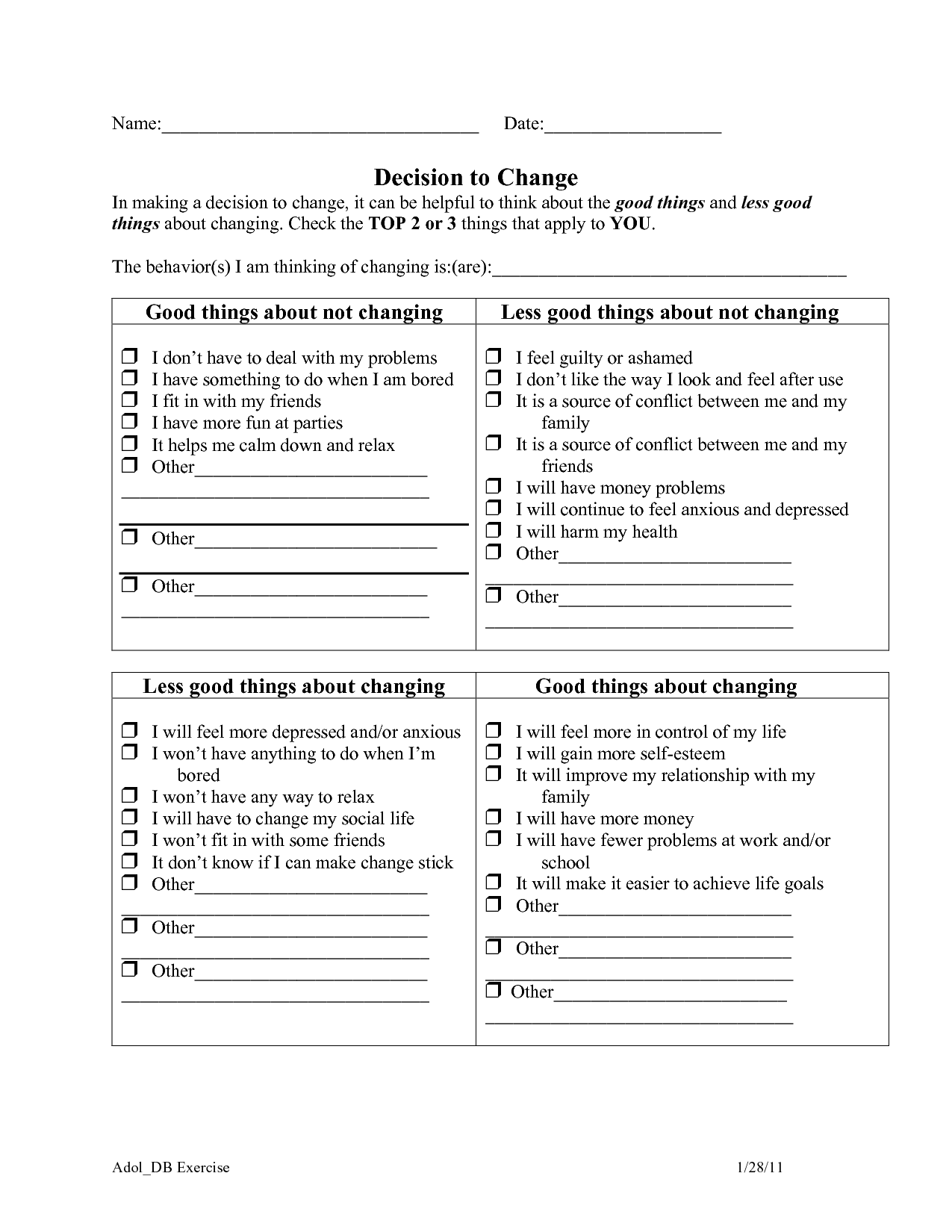
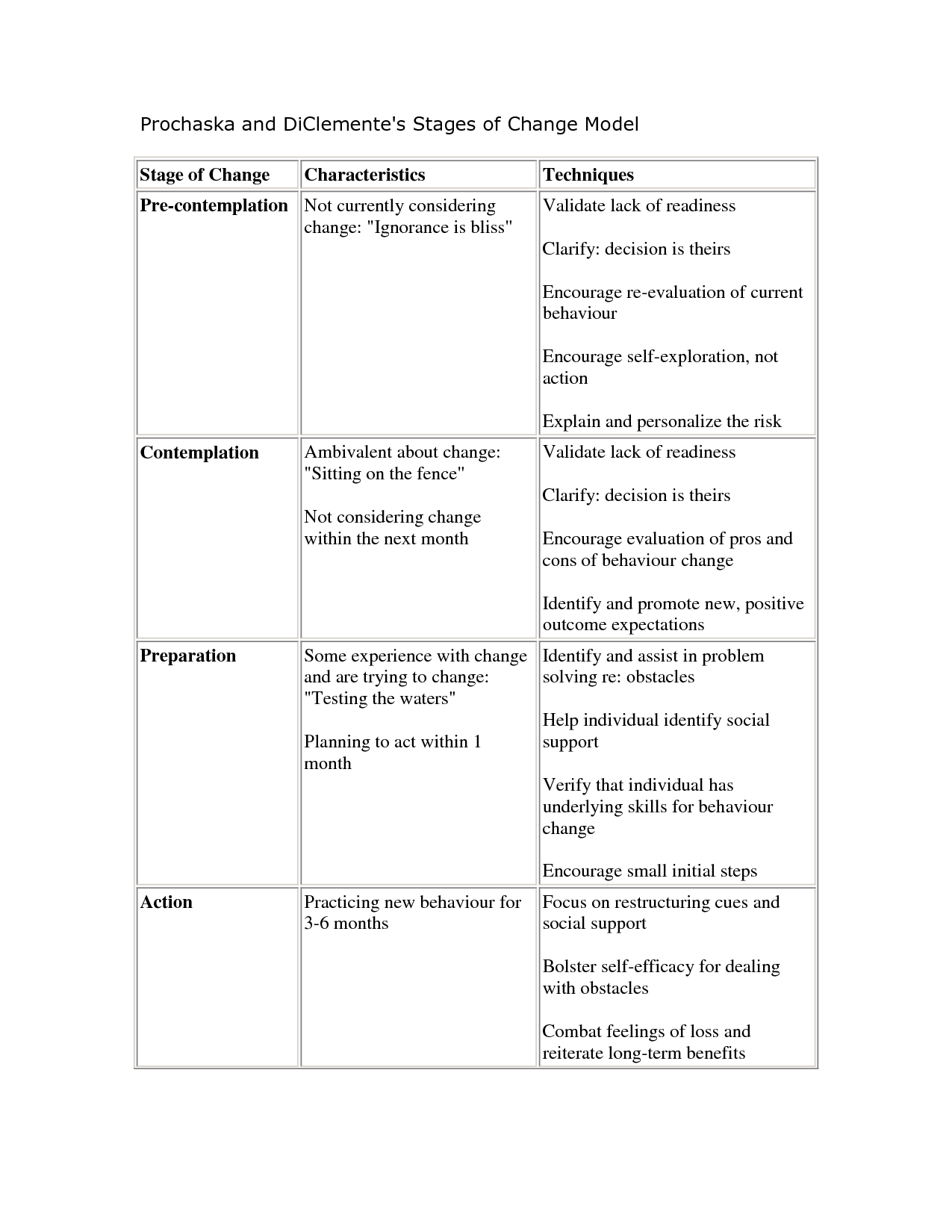
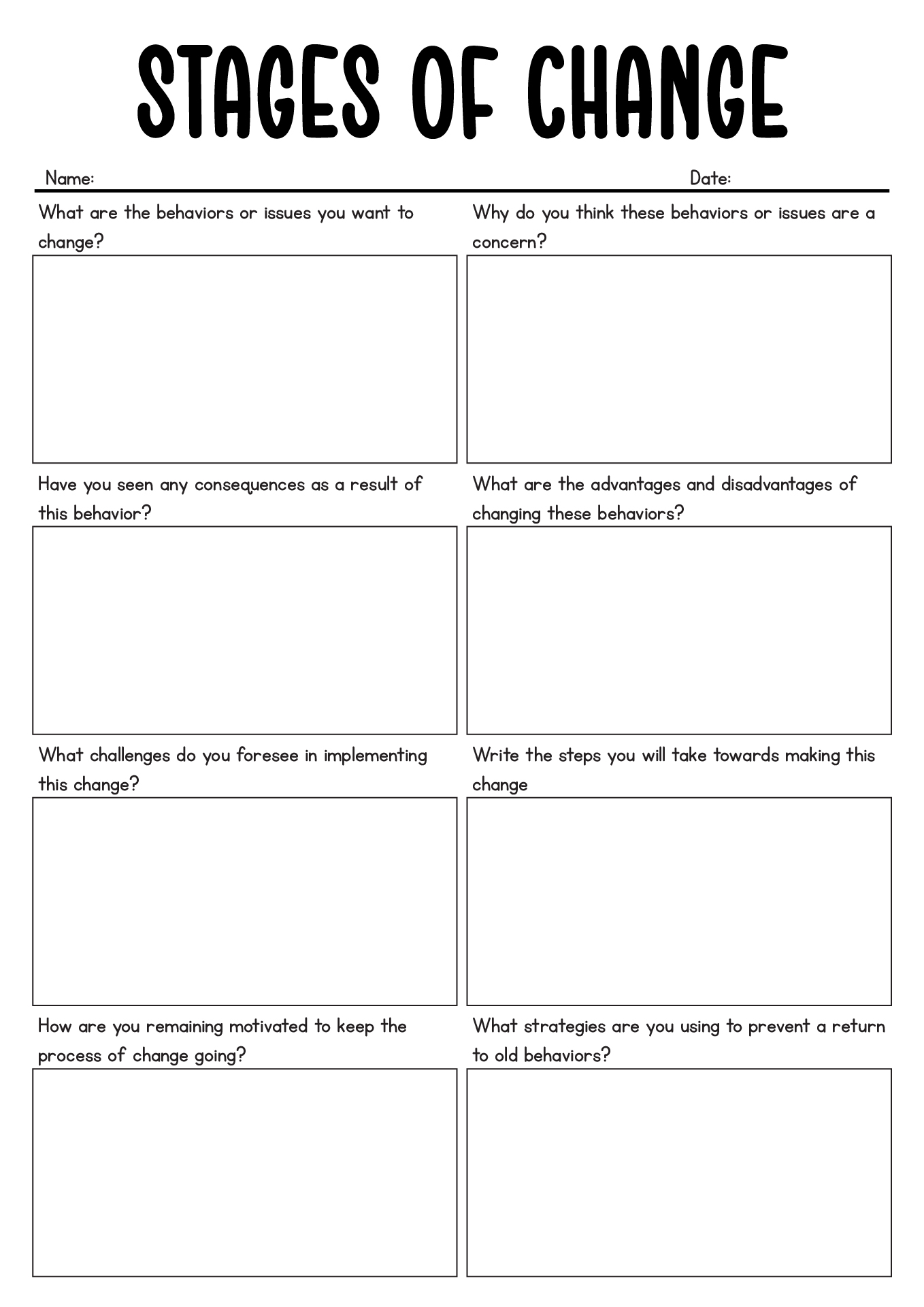
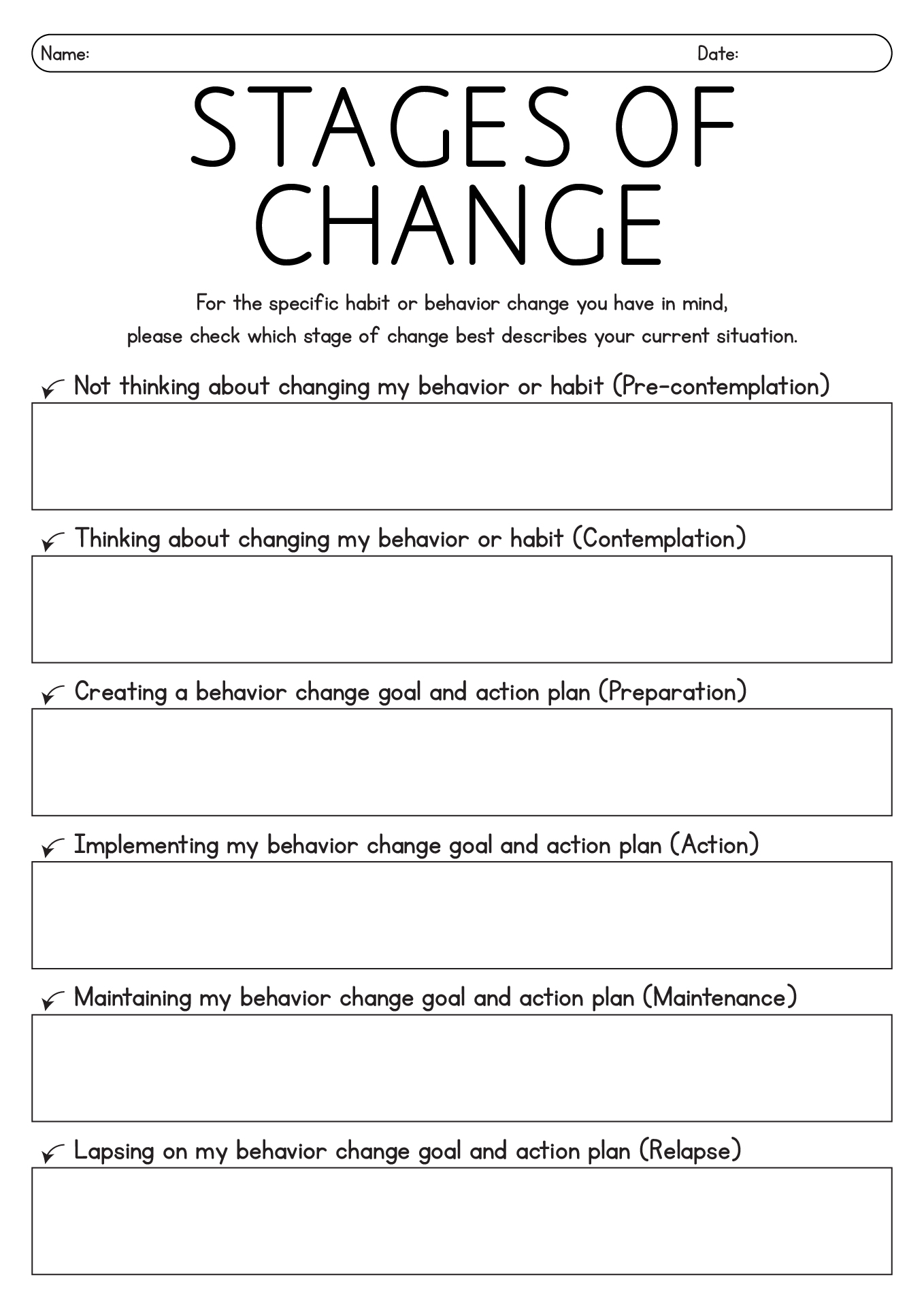
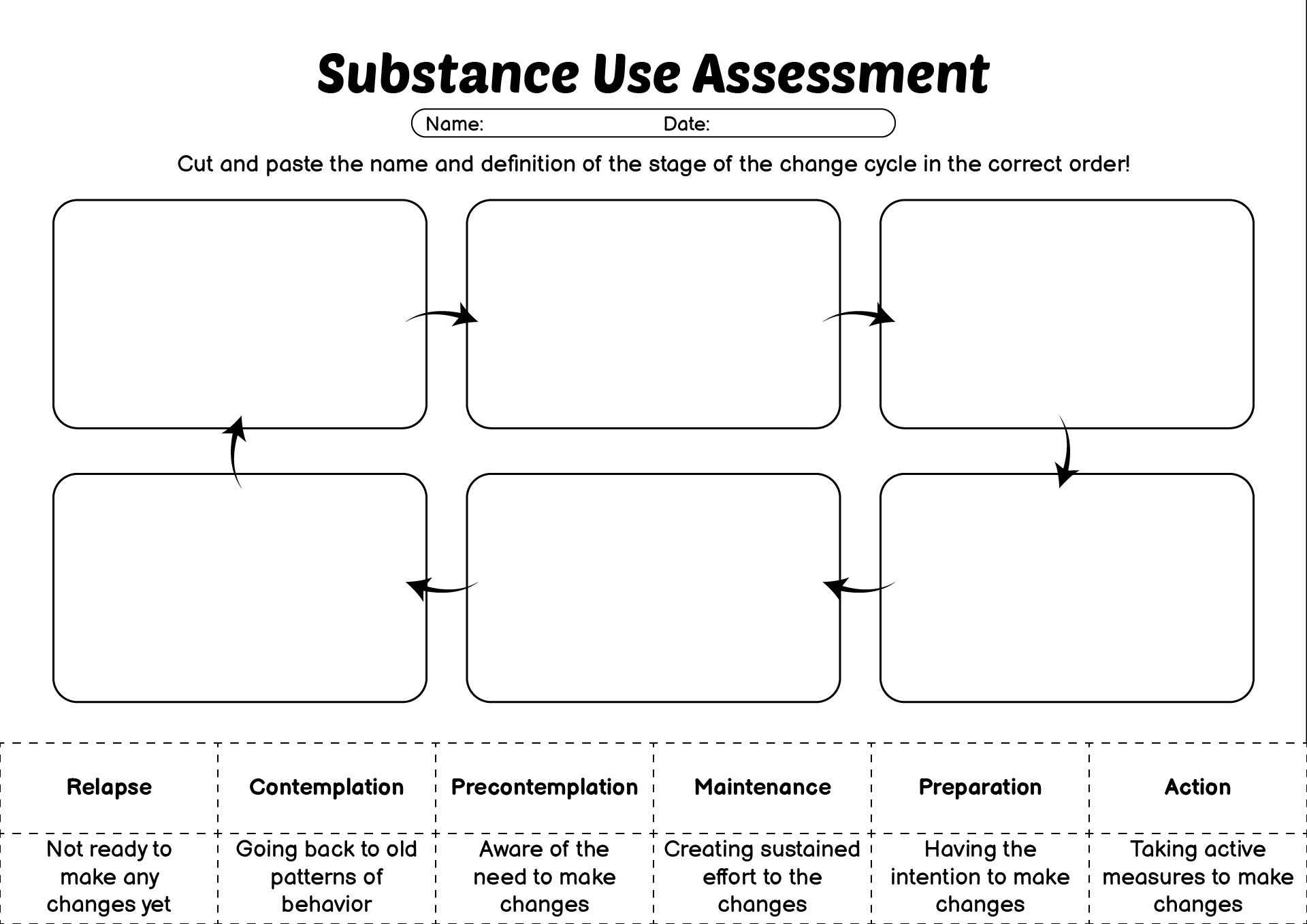
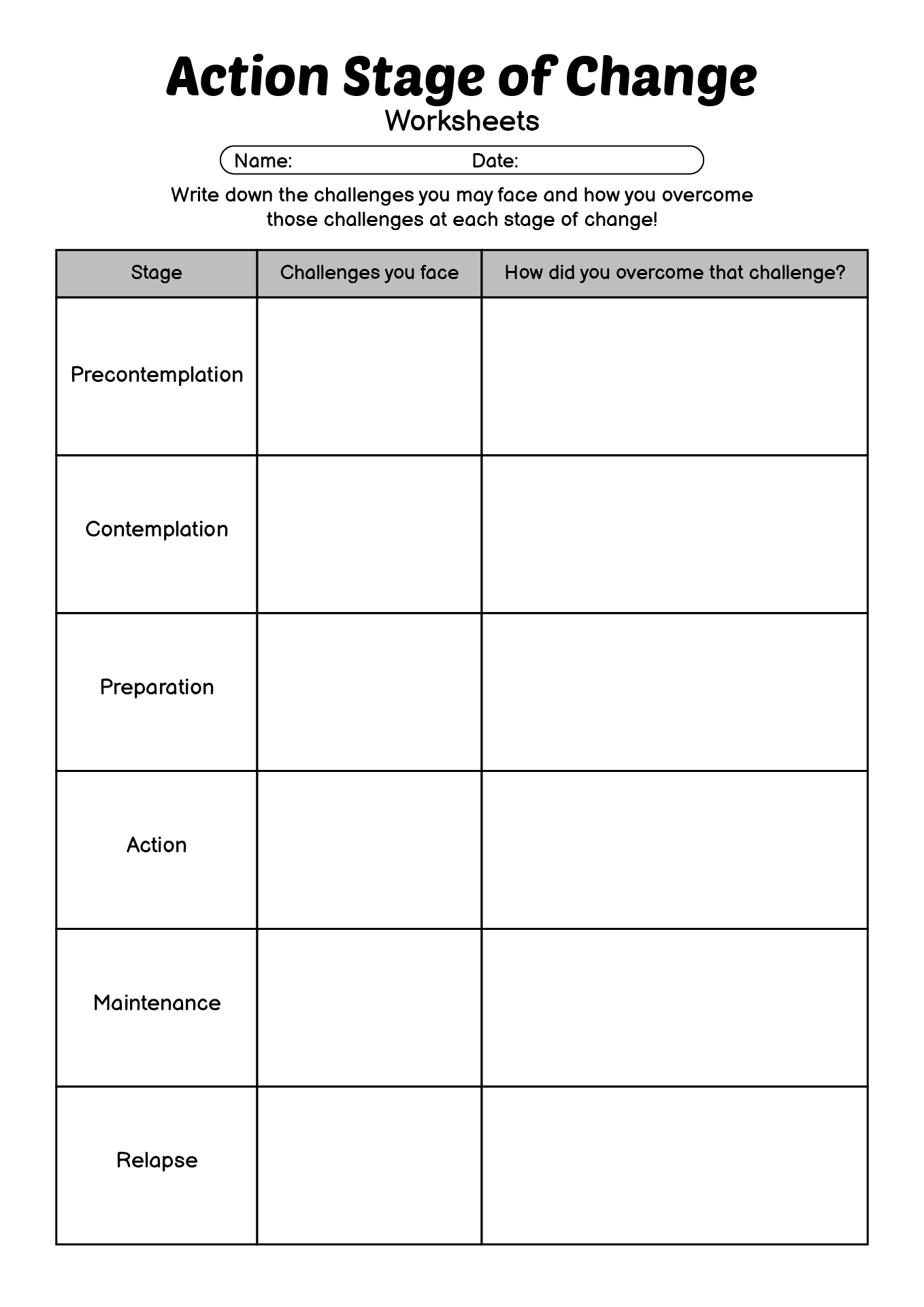
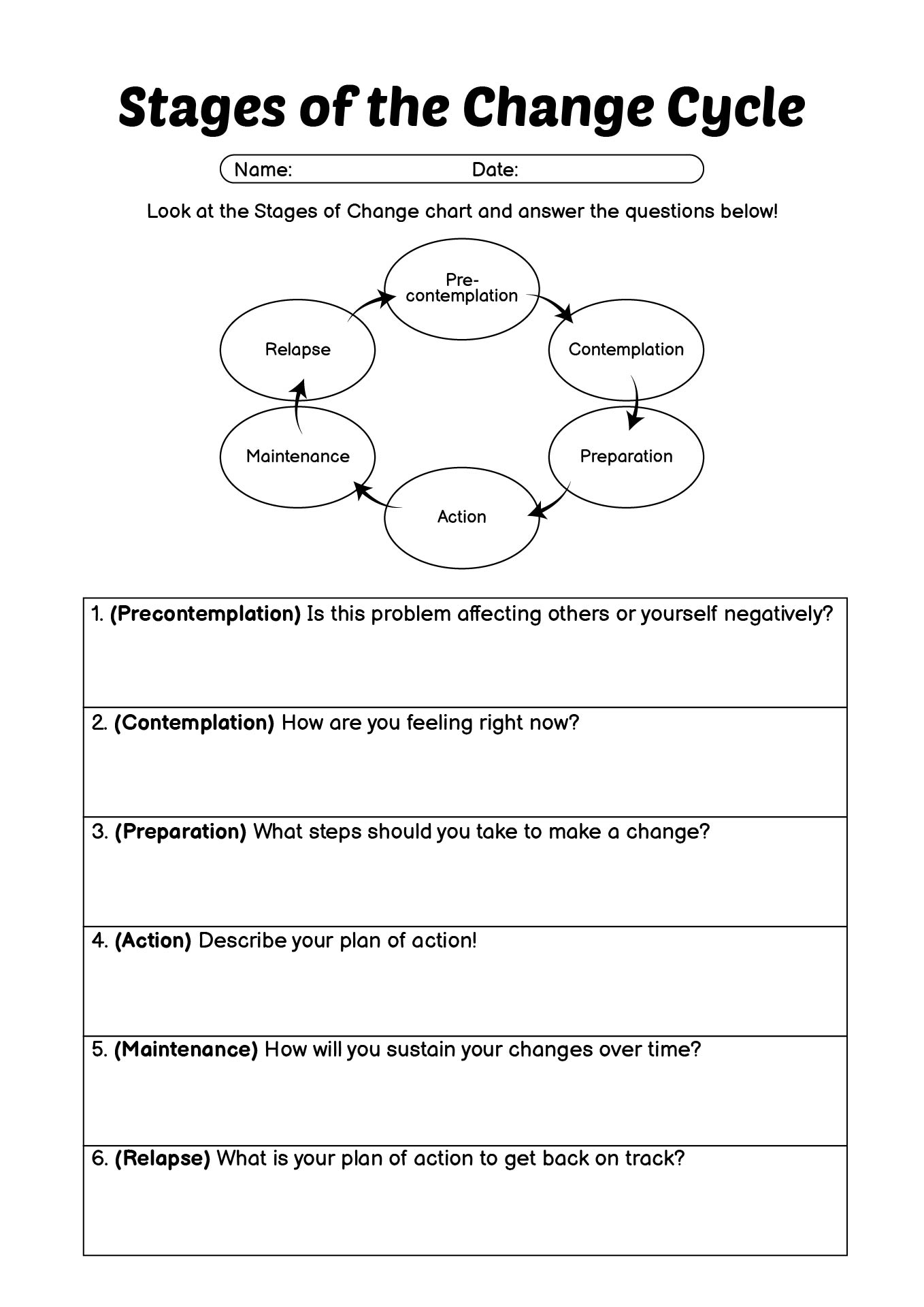
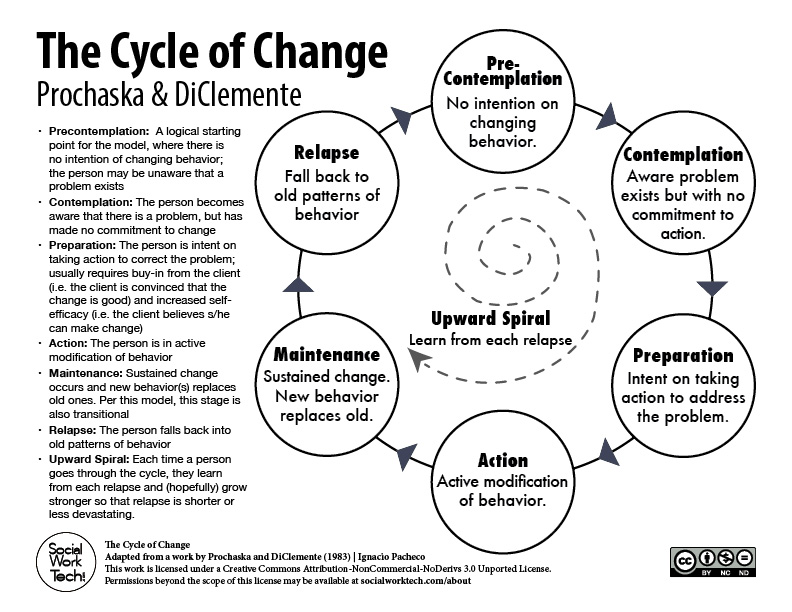














Comments